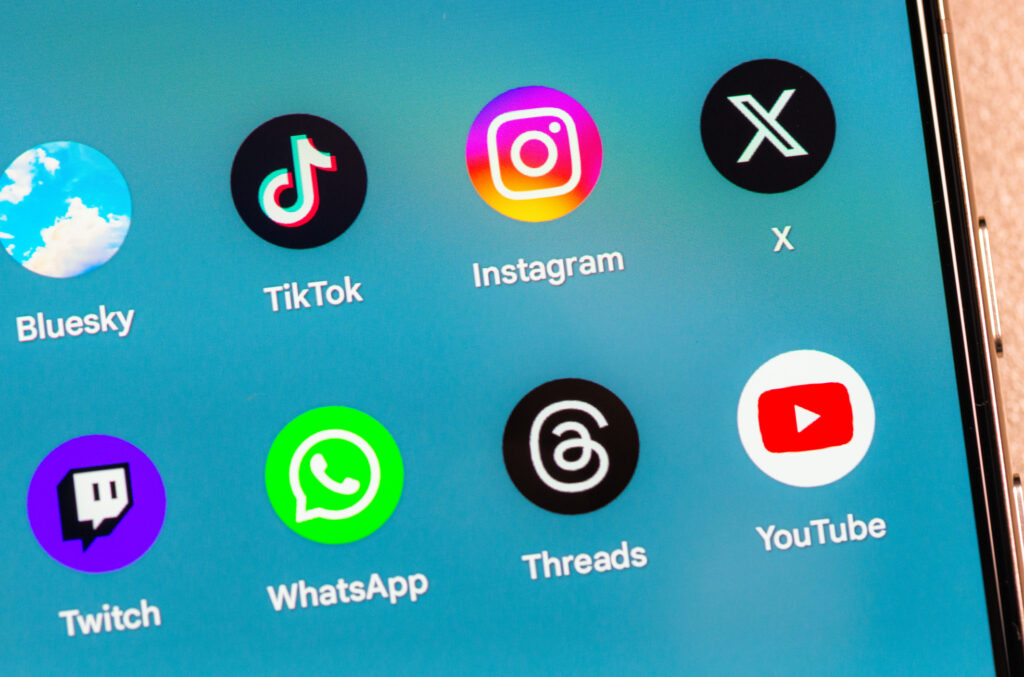A TikTok Ban Isn’t Likely. Here’s Why Dems Should Embrace It


Last week, the D.C. Circuit Court ruled that Congress’ “TikTok ban” bill was constitutional, presumably meaning that the app risks being banned in the United States. But the reality is that it’s almost a certainty that TikTok isn’t getting banned. In fact, it’s here to stay.
For Democrats still licking their wounds after last month’s elections, the truth is that we need to learn to love it. Here are some reasons why:
Social media and TikTok were a key to Trump’s victory.
One of the keys to Donald Trump’s victories in ’24, and in ’16, was his skillful use of social media. Much has been made of Trump’s appearance on long-form podcasts like the “Joe Rogan Experience,” but very few Americans listened to that podcast for three and a half hours. Instead, it was the edited clips, the packaging, and the distribution through a vast ecosystem that took his best pieces from these podcasts and amplified them to a huge audience through social media.
Moreover, Trump’s McDonald’s stunt, where worked for a time at a Pennsylvania location in October, generated hundreds of millions of views. It’s not a coincidence that Trump started to take a lead at the same time. His social media has helped his skyrocketing favorability with younger voters and, as much as we might hate it, his social media advisors, like “TikTok Jack,” have helped the “Trump Dance” become viral.
But it’s not just memes and clips. More and more Americans get their news on social media too. For example, Trump’s closing statement in the debate — his most coherent remarks by far — got nearly 25 million viewson TikTok while Harris’ closing statement got less than 5 million views on TikTok. The vice president may have won it on TV, at least according to CNN viewers, but his metrics show that Trump won it on TikTok.
Accept the reality TikTok almost certainly isn’t going away.
But the court just ruled last week that the TikTok ban was upheld, so TikTok is going away, right? Not so fast. The truth is that Trump believes that TikTok helped him, and he’s not likely to let it go away. Congress’ TikTok ban bill mandates that the app will be banned from Google and Apple’s app stores on January 19th, one day before Trump’s inauguration, unless the current owners can find a buyer with a cool $200 billion lying around.
Even if the Supreme Court upholds the ban, it will be up to Trump’s Department of Justice to actually enforce it. And what are the chances Trump enforces this bill?
Trump has already signaled that he wants to save TikTok, and the reality is that he has no intention of giving up this tool that he thinks was critical to his win. So then it will be up to Congress to make him to enforce their law, and the odds that a Republican-led Congress will do that is slim to none.
The reality is that TikTok isn’t going away, that some of the biggest Congressional China hawks who were pushing the ban, such as Mike Waltz and Marco Rubio, are now part of the Administration and singing a different tune.
Embrace TikTok instead of trying to ban it.
But here’s the thing: TikTok isn’t inherently a tool of the right, the way one can argue that X is under Musk or TruthSocial is under DJT Enterprises. Democrats may ask if there are security issues with an app that’s owned by a company with its own parent company that’s based in China.
But the basic truth is that the TikTok ban has always been more about politics than it is about real policy, and that there’s no reason that we’re singling out one company and letting X and Facebook slide. The reality is that TikTok is still the most balanced platform for news, it’s still the one where female, LGBTQ and left-leaning folks aren’t vastly outnumbered.
The Harris campaign felt bound by the Biden Administration’s attempt to ban TikTok, while also trying to use it at the same time. It was a waffling that was symbolic of the campaign’s challenge in trying to separate itself from the Biden Administration’s track record, even though the ban was deeply unpopular – especially among young Black and Latino voters, who were the very ones who defected from the Democratic Party in large numbers. Why didn’t we listen?
Moving forward, we need to forget the TikTok ban and embrace the app. Democrats and the left should move full-speed ahead into a strategy that understands its value — not just as a way to mobilize folks or get them inspired with memes, but to be integrated with strong messaging.
The Harris campaign built an incredible field machine, but our margins across the country got even worse. The fact is that moving forward, Democrats need a new 50-state strategy, and online organizing must be a critical piece, not an add-on.
We must be in these communities day-in, day-out, building online mechanisms for local communities to come together, discuss issues, criticize the Trump Administration and present Democratic positions in clear, compelling and down-to-earth ways — including on TikTok.
We ignore, criticize and try to ban TikTok at our peril. Learning to love it and use it well will help Democrats — not only in 2026 and 2028, but in the long run.
Mike Lux and Steven Choi are partners at Democracy Partners, a Democratic firm with offices in Washington, DC and San Francisco.
